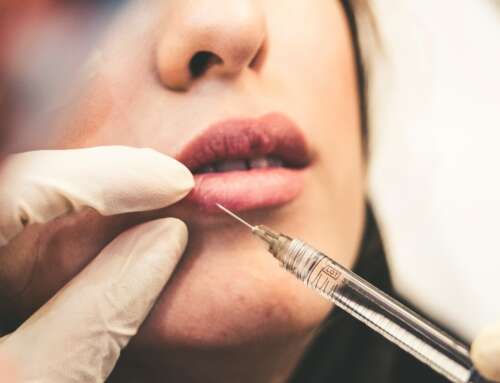Without a doubt, American sexual education needs a lot of work. Only 25 states even mandate that it be taught in public schools, and only 13 states require those sex ed programs to be medically accurate. In 2016, a study published by the Guttmacher Institute found today’s teens are actually receiving less education on topics like contraception and STI prevention than they did in years past.
In addition to improving access to this kind of basic sexual health information, a new paper published by the American Journal of Sexuality Education suggests we also need to expand the very definition of sexual health. One big addition that the researchers behind the paper recommend: make body image a core part of the curriculum.
How Body Image Affects Sexual Well being
We don’t often think of body image as being directly related to our sex lives, much less our sexual health, but a growing body of research shows the two are actually intimately related. Led by Virginia Ramseyer Winter, Ph.D., MSW, director of the University of Missouri Center for Body Image Research and Policy, the researchers outlined dozens of past studies that demonstrate this connection.
Most prominently, several studies have found negative body image is often associated with increased participation in risky sexual behaviors among girls and women, including not using any contraceptives, having more unprotected sex with casual partners, and tending to be drunk before sex. Meanwhile, women who are more satisfied with their bodies are more likely to use condoms and less likely to have unprotected sex after drinking, Dr. Ramseyer Winter’s team reported: “Increased body image satisfaction acted as a protective factor for this population.”
Why would having poor body image lead girls to having more unsafe sex? One 2002 study that surveyed 522 black teen girls suggests part of the problem is the sexual beliefs and attitudes that tend to come with having a negative view of one’s own body: These girls tended to deal with a nagging fear of being abandoned while asking their partners about using condoms, and they also worried about things like not having a lot of “options” for sexual partners and not having a lot of control in their relationships. They also tended to have generally low self-esteem and more symptoms of depression.
It seems that this concoction of negative beliefs about one’s own sexual and personal worth can lead to difficulties with communicating, the researchers explained: “Self-objectification and poor body image may interfere with a young woman’s ability to advocate or negotiate on her behalf regarding her sexual health.”
– Tiffany Lashai Curtis, mindbodygreen.com
Read more: Why Doesn’t Sex Ed Cover Body Image?
Image source: Pixabay








Leave A Comment